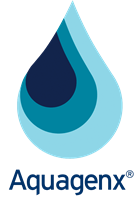Vital Signs Tests Streams in Tanzania to Collect Data for
Their Monitoring System
![]() Vital Signs, a program led by Conservation International with partners, is a monitoring system that collects and integrates data on agriculture, ecosystems and human well-being. The foundation of the system is open-access, quantitative data collected systematically at all of the scales that are relevant for agricultural decision-making. www.vitalsigns.org
Vital Signs, a program led by Conservation International with partners, is a monitoring system that collects and integrates data on agriculture, ecosystems and human well-being. The foundation of the system is open-access, quantitative data collected systematically at all of the scales that are relevant for agricultural decision-making. www.vitalsigns.org
Challenge
In June 2013, the Vital Signs team traveled to Mikumi National Park, Tanzania to train their Tanzania field team in their protocols for collecting data on biomass, soils, crops and water. The group included Vital Signs directors and staff from Conservation International and the Earth Institute, and representatives from the Tanzania Forest Conservation Group and the TEAM Network. They were joined by a team of five Tanzanians ready to be trained as field technicians. Vital Signs needed a cost-effective, reliable way to collect data on water quality in low resource settings.
Solution
 Vital Signs used the Aquagenx CBT to collect water for testing just outside Mikumi Town, which is located at the edge of the National Park. At the stream they selected, they observed several troubling practices: a large truck was pumping something into the water via a long hose, fertilized crops were being cultivated just off the banks and several local people were using the stream to wash clothing. The group collected water samples in the CBT sample bottles, returned to their camp to run tests, and incubated samples at ambient temperature for 48 hours.
Vital Signs used the Aquagenx CBT to collect water for testing just outside Mikumi Town, which is located at the edge of the National Park. At the stream they selected, they observed several troubling practices: a large truck was pumping something into the water via a long hose, fertilized crops were being cultivated just off the banks and several local people were using the stream to wash clothing. The group collected water samples in the CBT sample bottles, returned to their camp to run tests, and incubated samples at ambient temperature for 48 hours.
Test Results
Test results showed, among other things, there were high levels of E. coli in the water sampled. Said Habibu, a Coordinator with the Tanzania Forest Conservation Group, wrote “The observation of E. Coli during our water sampling exercise was a surprise to me, realizing that possibly much of the water used by local people is not safe for consumption and the government has not put much concern in monitoring water quality in our rivers and watersheds. This can be one reason for waterborne diseases in many of the local communities in Tanzania.”
Conclusion
Sara Barbour, Senior Coordinator with Vital Signs Monitoring System, says “We were impressed with the ability of the CBT Kits to deliver rapid results, and they clearly contributed to our project’s capacity to effectively collect data on water quality. We have since used them for our training in Ghana, and they will be a part of our water quality protocol for all Vital Signs field teams and regions.”
